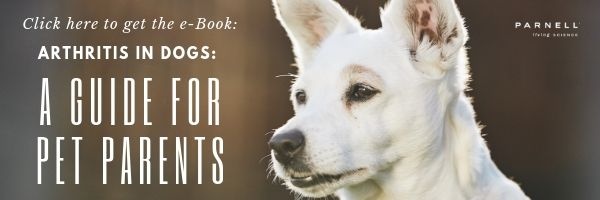 November is "National Senior Pet Month," thanks to the ASPCA for allowing the nation to focus is on the joy senior pets bring to our lives. As we reflected last week in the article, "How Old is My Dog?" many of us do not think we have a senior dog, when we really do. Senior dogs make great pets. The key is to keep them happy, healthy and learning new things. Here are some ways to do it!
November is "National Senior Pet Month," thanks to the ASPCA for allowing the nation to focus is on the joy senior pets bring to our lives. As we reflected last week in the article, "How Old is My Dog?" many of us do not think we have a senior dog, when we really do. Senior dogs make great pets. The key is to keep them happy, healthy and learning new things. Here are some ways to do it!
7 TIPS FOR teaching OLDER DOGS new tricks
Repetition is the key for success. But also, start with keeping your dog healthy so they are ready to learn and engaged with what you want to do. For senior dogs, their health is very important to keep them sharp. Continually engage your older dog into play, such as teaching them new tricks. Think of it as a way to keep them healthy and more focused and mobile.
Here are 7 tips to help make it possible to teach your adorable older dog new tricks.
- Teach as they age. Just as adults need continuing education and mental stimulation to sharpen their minds, so do dogs. Learning new tricks will help a dog’s mind and they will be more attuned with changes in behavior and seek opportunity to do something different.
- Be patient. This is certainly a key for older dogs. They haven’t learned a new trick in a while. So be sure that you notice when you have their attention and when you don’t. If they start to look bored or distracted, that is a sure sign that they need a break.
- Enhance communications. The more tricks you teach your dog, the better the communication between you. Always make eye contact so they know this is important to you.
- Reward their efforts. A nice healthy dog treat goes a long way.
- Start with the basics and build up. Start with the easiest tricks going from sit, stay. Then work your way up to “Pick up Toys” and more.
- Keep at it. This is true when it comes to dogs of any age. When they do their trick often enough, and the prize is worth winning (think of that healthy treat), then they will be excited and remember how to do their trick.
- Eat healthy. Good nutrition is always a factor – for humans and for dogs. Remember that not every food for senior dogs is the right one. Just like people, as dogs get older their metabolism slows down, which causes weight gain. Extra weight can be a real issue for a senior dog and a contributor to the chances the dog has arthritis.
Osteoarthritis in Dogs
We disagree with the saying, “you can’t teach an old dog new tricks.” At Parnell Living Science, the first question often asked is could the problem be your dog has arthritis? And if so, is this what is preventing them from wanting to be active, run and, of course, learn new tricks?
What exactly is osteoarthritis? Think of it as arthritis in dogs. As many humans will get arthritis as they age, it is understandable that dogs will experience this too. Age isn’t the only factor, but it certainly is a big one.
80% of dogs over the age of 8 and 20% over the age of 1 will suffer from osteoarthritis (OA).
OA can be as painful for our dogs as it is for us. In healthy joints, a slippery tissue called cartilage cushions the ends of the bones in the joints. With OA, cartilage breaks down, causing pain and swelling. As OA gets worse, bone spurs can form, causing more pain and joint damage. When this happens, your dog may become less active or show signs of stiffness when getting up. However, OA can be difficult to recognize. Your dog may not show any signs of OA. Try this short online assessment to help determine if your dog has OA.
Give your dog supplements to add to their nutrition. Adults are learning the benefits of taking supplements as they age and the positive impact they can have on their health. The same goes for dogs. The earlier you start with Glyde Mobility Chews, the better. Give Glyde every day to bring back the playful puppy inside your dog. At Parnell Living Science, we are committed to making life better for dogs and cats and therefore, pet parents.






